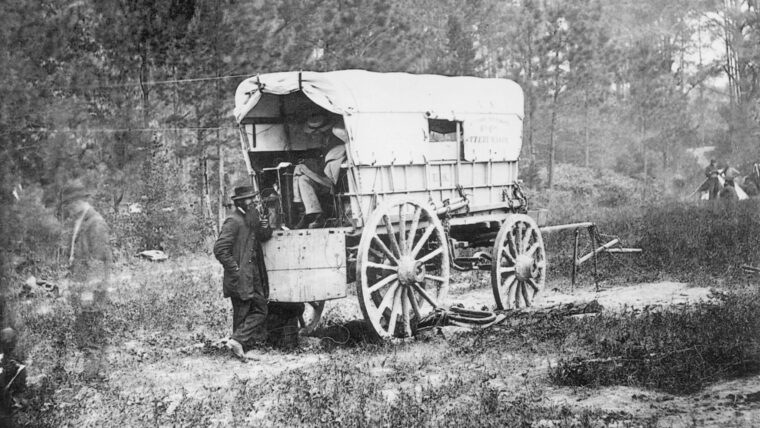
Confederacy
Civil War Weapons: The Telegraph?
By Jim HavilandEarly in the American Civil War, during the first months of 1862, Union General Henry Halleck, commanding from his headquarters in St. Read more

Confederacy
Early in the American Civil War, during the first months of 1862, Union General Henry Halleck, commanding from his headquarters in St. Read more
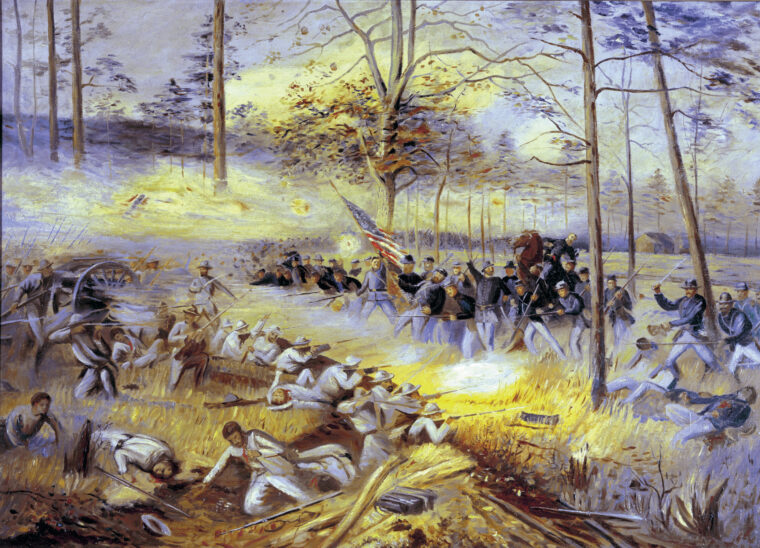
Confederacy
It had been a little over six months since Major General William S. Rosecrans and his Army of the Cumberland had checked the Confederates at the Battle of Stones River (December 31,1862–January 2,1863). Read more
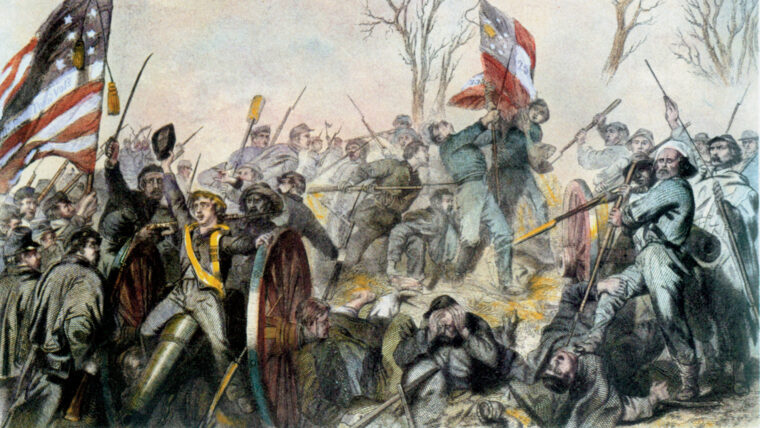
Confederacy
Late in the morning of January 2, 1863, Confederate Maj. Gen. John Breckinridge gazed through the brush at newly arrived Union infantry occupying a partially wooded hill to his front near Murfreesboro, Tenn. Read more
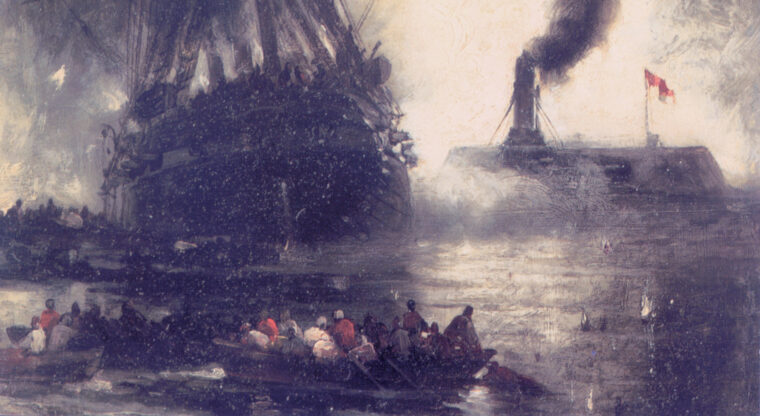
Confederacy
The epic battle between the Virginia (Merrimack) and Monitor might never have taken place because, as strange as it may seem, the Confederates did not have enough experienced men to man their ship. Read more
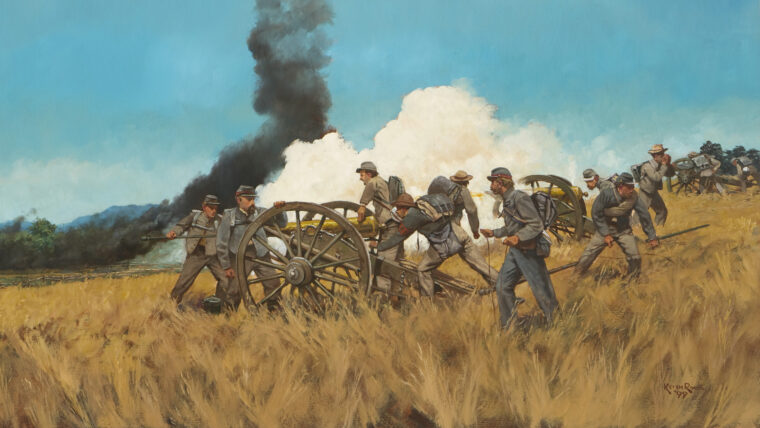
Confederacy
On September 7, 1862, Colonel Walter Taylor of General Robert E. Lee’s staff wrote to his sister: “The Yankee papers of the 6th exhibit a gloomy picture for our enemy. Read more
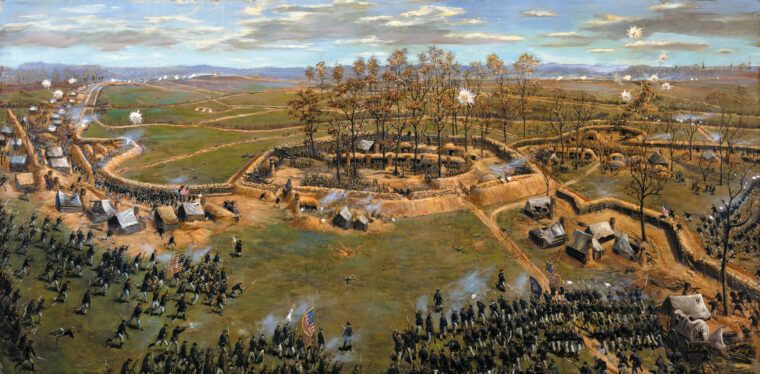
Confederacy
By the early spring of 1865, the Southern Confederacy was on the cusp of extinction. In every theater of the four-year-old Civil War, the gray-clad Rebels were getting the worst of things. Read more
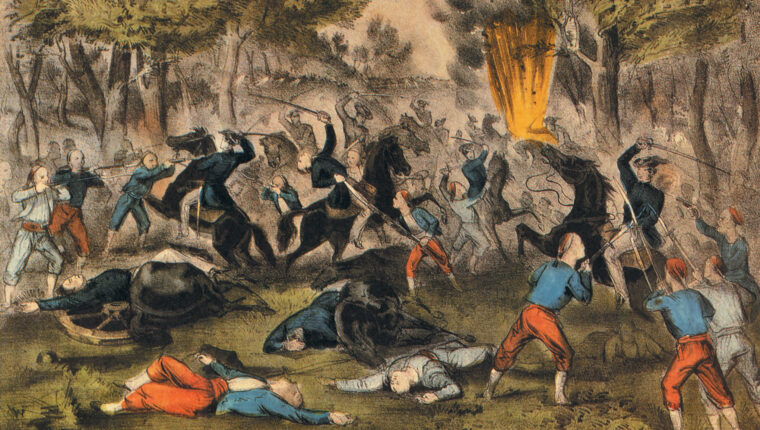
Confederacy
“But for you, there would have been no Battle of Bull Run.” When Confederate President Jefferson Davis made that blanket statement in the summer of 1862, he was not addressing Pierre G.T. Read more
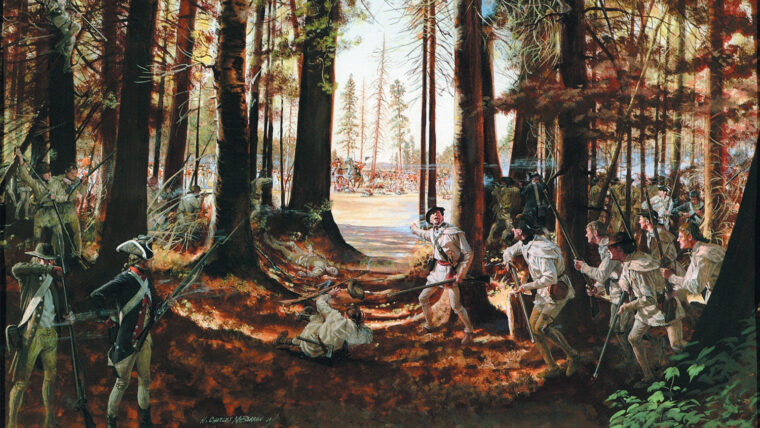
Confederacy
By the mid-1700’s, the American long rifle had acquired an almost supernatural reputation. To the British troops who were unfortunate enough to come up against it in combat during the Revolutionary War, the rifle was more an affliction than a weapon. Read more
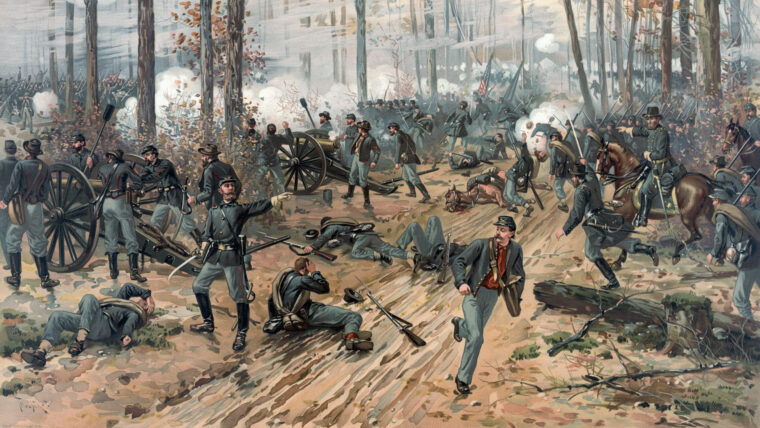
Confederacy
By the end of the winter campaign of 1861-1862, Union Maj. Gen. Ulysses S. Grant had shattered the Confederate defenses in northwest Tennessee with a combined land and water attack on Forts Henry and Donelson, forcing General Albert Sidney Johnston to abandon his bastion at Nashville and retreat southward. Read more
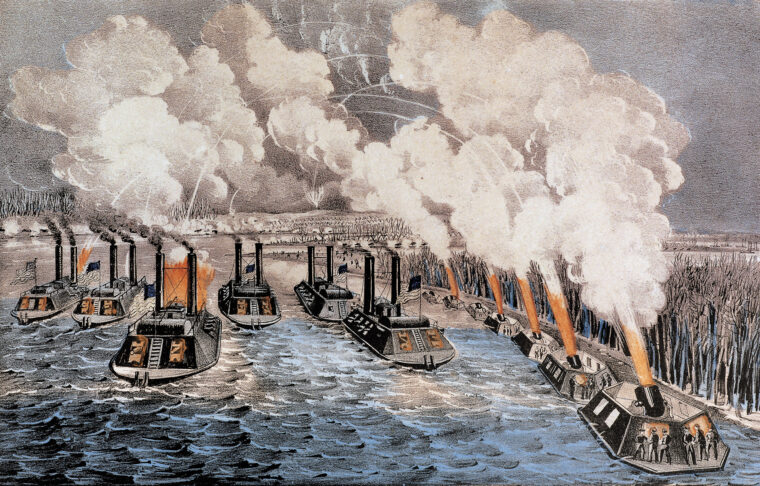
Confederacy
With its whistle blaring, the Confederate gunboat Grampus steamed into Madrid Bend, where Missouri, Kentucky, Tennessee, and Arkansas come together on the Mississippi River. Read more
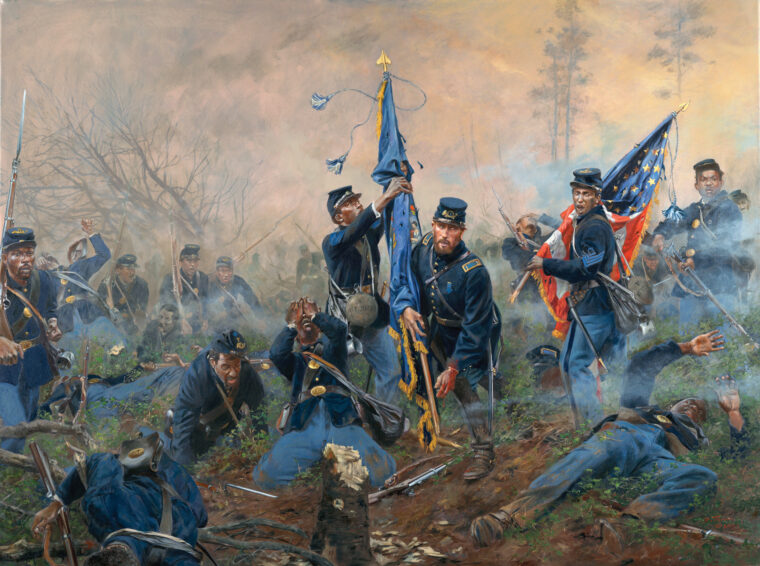
Confederacy
Reports of a massive enemy force crossing the James River to assail the paper-thin Confederate lines defending Richmond reached Lt. Read more

Confederacy
On November 8, 1861, two distinguished diplomats from the newly established Confederate States of America were arrested and removed from the British mail steamer Trent by the American ship San Jacinto in the Bahama Channel near Havana, Cuba. Read more

Confederacy
In 1864, the Civil War was raging across the United States. At the epicenter of the seemingly stalemated conflict was the vital Confederate stronghold at Petersburg, Va. Read more
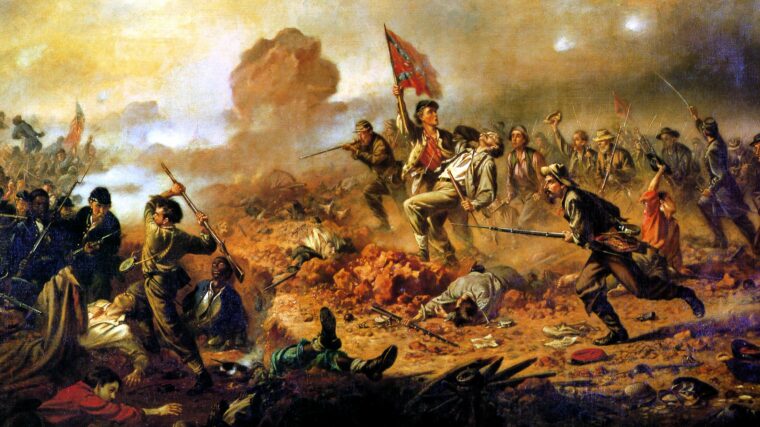
Confederacy
In the summer of 1864, after six weeks of virtually constant combat in the Wilderness area of northern Virginia, the Union and Confederate armies of Ulysses S. Read more
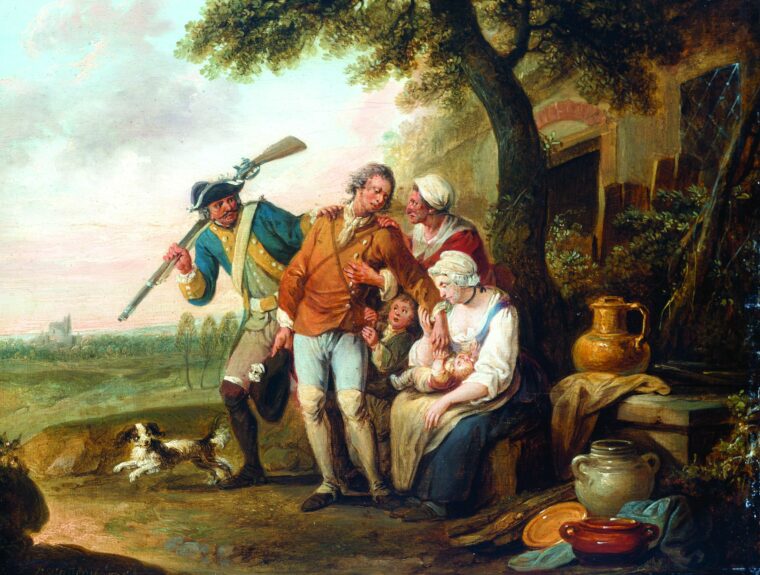
Confederacy
The call of a nation on its civilian population either to create a military force or to augment a standing army is virtually as old as civilization itself. Read more
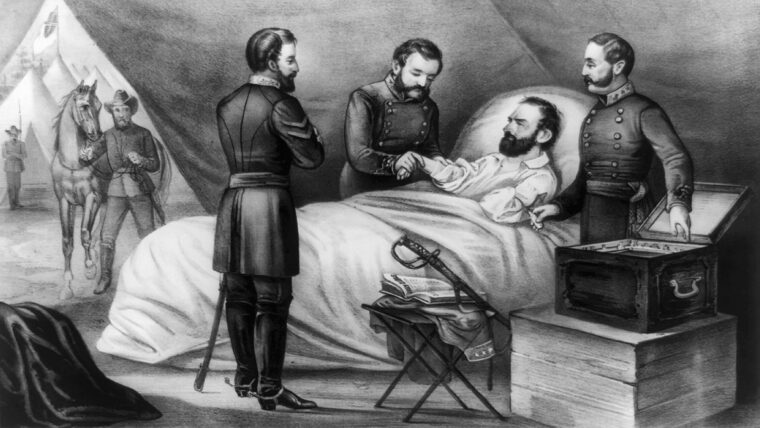
Confederacy
Following his greatest victory, at the Battle of Chancellorsville on May 2, 1863, Confederate Lt. Gen. Thomas J. Read more
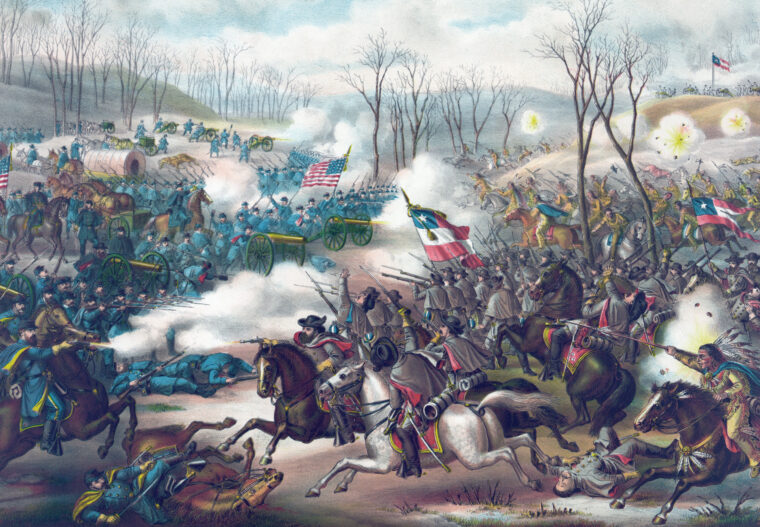
Confederacy
For three weeks in February 1862, Union Brig. Gen. Samuel Curtis led his Army of the Southwest on a 200-mile advance southward across the Ozark plateau in Missouri and into northern Arkansas. Read more
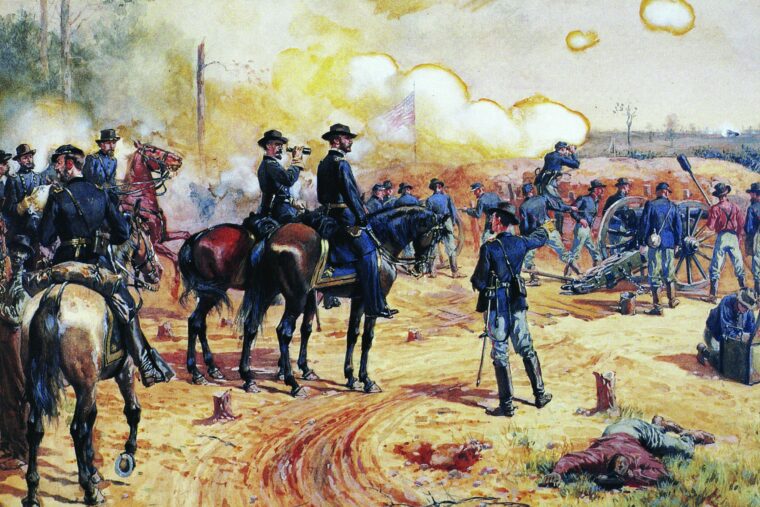
Confederacy
During the early afternoon of July 9, 1864, the 103rd Ohio Volunteer Infantry Regiment of Maj. Gen. John M. Read more
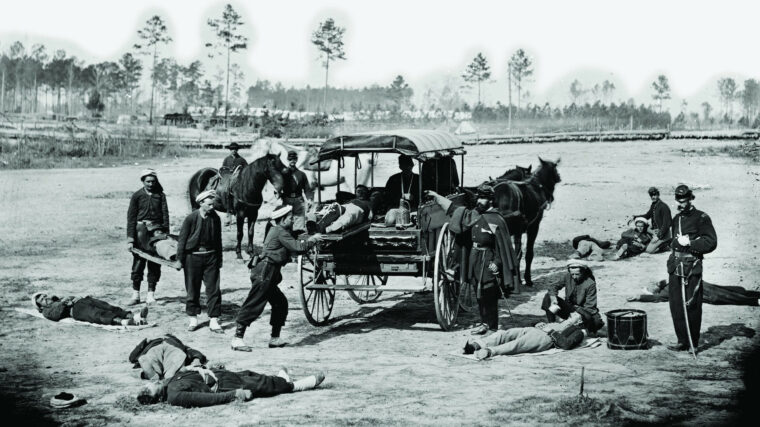
Confederacy
In the spring of 1861, a group of influential northern men and women, led by Unitarian minister Henry Whitney Bellows and social reformer Dorothea Dix, met in New York City to discuss the formation of a sanitary commission, modeled after the British Sanitary Commission established during the Crimean War, to provide relief to sick and wounded soldiers in the Union Army. Read more
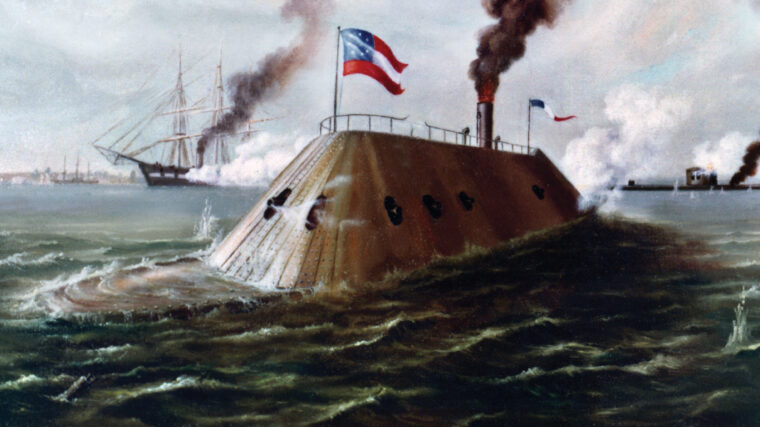
Confederacy
Smoke swirled amid the thunderous noise that roared from powerful Dahlgren guns and Brooke rifles. Thousands of spectators along the shore watched the two most dangerous warships in the world at each other at point-blank range. Read more